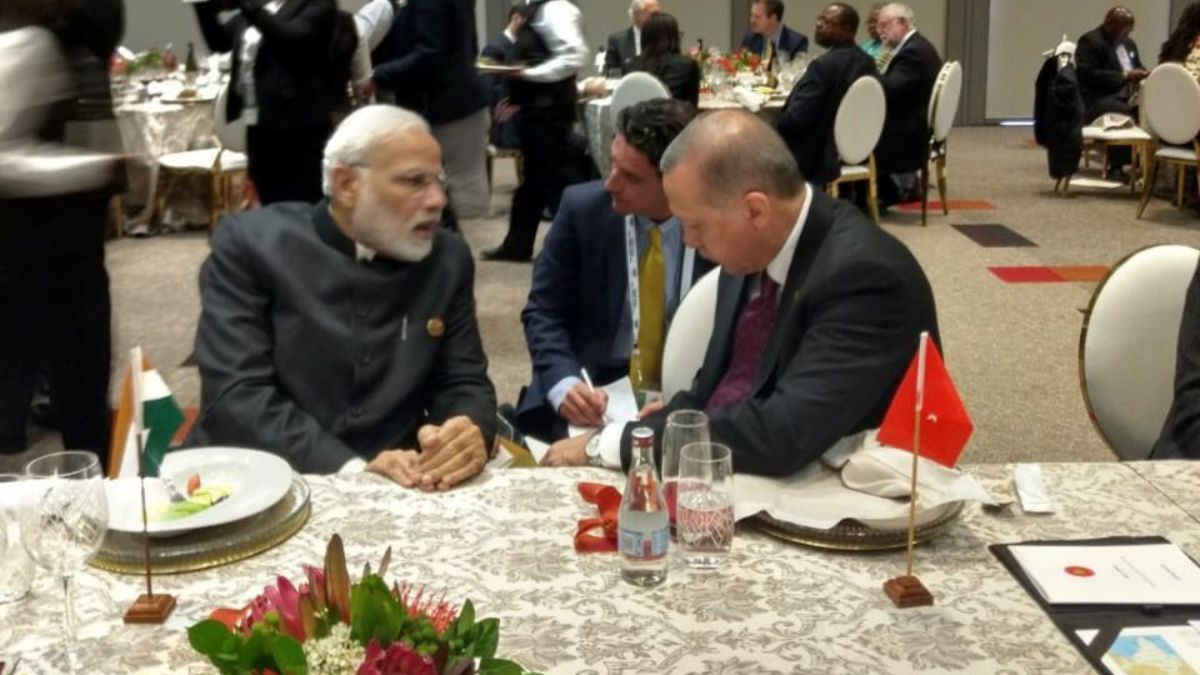Turkish analyst terms Ankara's support for Pakistan 'ill-advised': 'But, India shouldn't burn bridges'
 Prime Minister Narendra Modi with Turkish President Recep Tayyip Erdogan | X
Prime Minister Narendra Modi with Turkish President Recep Tayyip Erdogan | X
A Turkish analyst has called Ankara's decision to openly support Pakistan in the India-Pakistan conflict an "ill-advised decision", but called on India to not to burn bridges with elements that will lead the way in establishing closer relations with Turkey.
"It can be rightfully questioned what benefits Turkey has gained from declaring that it is on Pakistan's side," Prof İlter Turan of Istanbul Bilgi University wrote in his piece that appeared on Ekonomim.
"While it seems appropriate for Turkey not to immediately take sides in the conflicts that have erupted along the India-Pakistan border, India should also be careful not to burn bridges with the elements that will lead the way in establishing closer relations with Turkey," Prof Turan said.
The analyst argues that Turkey is described as a country that supported Pakistan in the past, but there is no reason for today's Turkey to take sides in the India-Pakistan conflict. "Yes, in the past, Turkey had developed friendly relations with Pakistan, but in recent years, it has also been establishing good relations with India. In today's world, where China and America are heading towards a global conflict, India stands out as another centre that is outside this conflict," he said in the article.
Prof İlter Turan also lavished praise on the Indian economy, stating that observers believe it will catch up with the Chinese economy in the foreseeable future. "In short, we have a country whose global importance is increasing and with which other countries want to develop good relations. The increasing importance of India has not escaped the attention of Turkey's leading economic actors," he said.
The analyst goes on to describe how a well-known white goods manufacturer in Turkey (Voltas) has important investments in India, while a company providing air service (Celebi Aviation) has operations in many airports. He also cites how India's upper classes have discovered that Turkey is a place where they can hold weddings.
"Since both countries continue to develop economically, it can be expected that they will develop more comprehensive relations in the future," he said, questioning what Turkey gained by declaring it supported Pakistan when it wanted to have good relations with both sides.
He also hit out at India's decision to boycott Turkish products.
"Unfortunately, India’s reaction to the ill-considered statements of the Turkish government has not been very encouraging either. Turkish air carriers have been prevented from flying to India. Wealthy Indians have already started to cancel weddings they planned to have in Turkey. Some articles in the Indian press call for Turkish businesses in the country to be put under the microscope. When the proposed measures are carefully considered, it can be seen that these will bring no benefit other than causing trouble to the forces in Turkey that want to establish stronger relations with India," he argues.
He added that both countries were en route to becoming economic powers, and cooperation in many areas would be beneficial for both sides. The analyst also called on India and Turkey not to let the conflict with Pakistan prevent them from developing their potential for cooperation.
Middle East